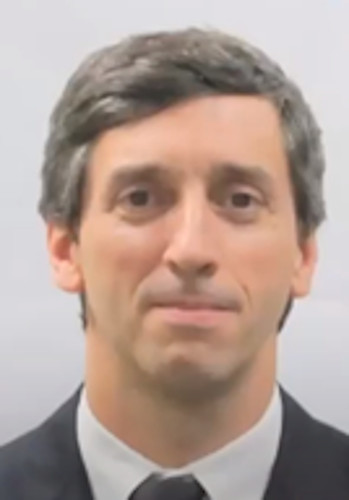New York, United States—On October 22, 2020, the NGO Committee on the Family hosted a webinar on “Helping Children and Families in All Circumstances” to an audience of UN staff, delegates and NGO representatives to the UN. This webinar commemorated the adoption of the Convention on the Rights of the Child (CRC) in October 1989. The CRC, ratified by nearly every country worldwide, cements a commitment to the best interests and rights of children, including nondiscrimination, right to life, survival, and development. The focus of this discussion was the unique role of parents and the family to protect these rights and ensure that children receive optimal opportunities for development. The Convention upholds the family as “the fundamental group of society and the natural environment for the growth and well-being of all its members and particularly children, [which] should be afforded the necessary protection and assistance so that it can fully assume its responsibilities.”
Dr. Rima Salah, chair of the Early Childhood Peace Consortium (ECPC), has served in numerous roles at the UN such as former Deputy Executive Director of the UN Children’s Fund (UNICEF), Deputy Special Representative of the Secretary General in Peacekeeping Mission in the Central African Republic and Chad, and member of the UN High-Level Panel on Peace Operations. Dr. Salah began by applauding the impact of the CRC that brought about some major gains worldwide in children’s well-being and protection. Through her extensive work with children and families around the world, however, she shared her concern that still many children are behind in many areas such as education, health care, and food security. Additionally, many live in unstable, high-conflict areas: 250,000,000 children live in active conflict areas witnessing violence, killing and maiming.
Additionally, the Covid-19 pandemic has had a tragic toll on gains that had been made in the UN Sustainable Development Goals, especially with the increase in poverty worldwide. Dr. Salah reminded participants that children—especially those whose families are poor, lacking resources, displaced, and unstable—are the most at risk, but this vulnerability has heightened terribly with the pandemic. She emphasized that the CRC acknowledges that parents have the primary responsibility for the upbringing and development of children and that parents should be rendered assistance by the state and society in order to do so. However, Dr. Salah admonished that there is a great lack of family-oriented policies around the world that would improve the welfare of families and their children.
Dr. Salah closed with hopeful examples of initiatives of UNICEF and the ECPC in partnership with NGOs, such as the program “Families for Families.” This program has helped families in Beirut come to the rescue of other families suffering from the recent explosion. She also said that the advanced neuroscience revealing the critical importance of early childhood development has resulted in greater awareness and focus on empowering parents. There are many programs that support and guide parents, strengthening their capacities to bring emotional, social, and economic stability within the family and their community. Dr. Salah clarified that there is actually a global early childhood development “movement” utilizing neuroscience and practice showing the critical affects when effective early childhood development is stressed and parents are empowered. She added with passion, “This movement is about the transformative power of early childhood development, not only for the well-being of children, but for peace and cohesion in society.”
Mr. Nuno Crisostomo spoke from his three years of experience as the emergency specialist for UNICEF in the Democratic Republic of Congo (DRC). He explained that when the 60 years of violence and instability in DRC had finally ended, he witnessed the Convention on the Right of the Child effecting some substantial changes for the first time in the country’s history. For the first time, children were not being recruited by armed forces to fight in the conflicts, children could go to school as free education was offered, and polio was finally eliminated from the population due to vaccinations. Mr. Crisostomo explained that much of this was accomplished through the partnership of UNICEF and faith-based NGOs. However, the country still faces terrible challenges with numerous Ebola outbreaks and now the Covid-19 pandemic.
Strengthening the family, Crisostomo said, is an important solution for increasing children’s well-being and social development, noting also that the problem of absent fathers needs to be addressed. Concluding on a positive note, he stated that he is encouraged that a framework of strong partnerships has been established, and this will continue to assist progress in the rights and well-being of children and their families.
Ryan Koch, co-chair of the NGO Committee on the Family and director of the International Affairs Department of the Church of Jesus Christ of Latter Day Saints, moderated the panel and handled questions and answers.

